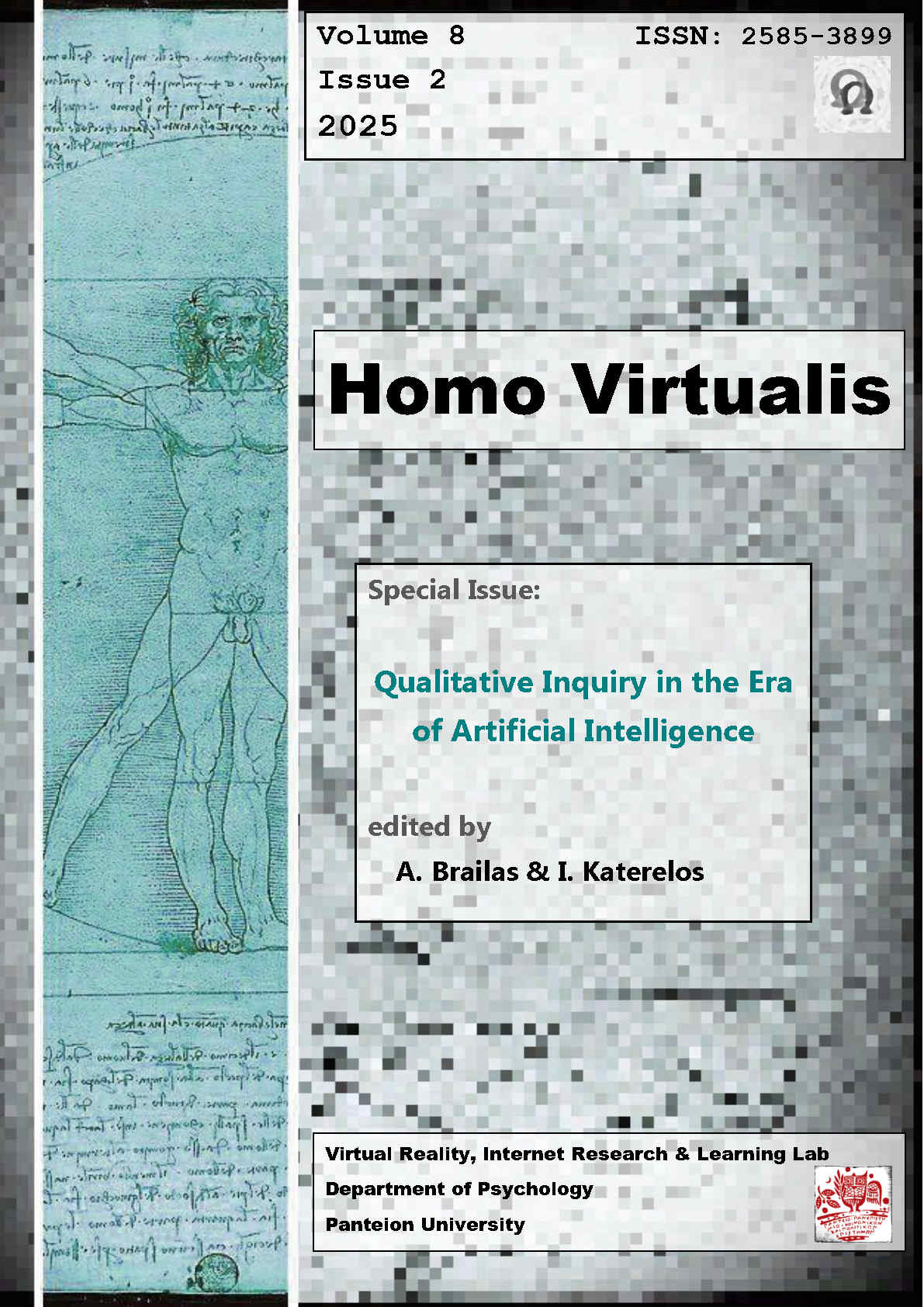Interpersonal relationships and academic experiences in emerging adulthood: An exploration of challenges and resources
Περίληψη
The aim of this study is to examine the developmental stage of emerging adulthood through the eyes of the participants, with an emphasis on their lived experience in academia. For this purpose, it employs a phenomenological qualitative inquiry through creative multimodal methods. The focus of the study is on the psychosocial effects, difficulties, and resources that characterize this period, from the perspective of interpersonal relationships and academic experiences. By combining appreciative inquiry with semi-structured multimodal interviews, participants (10 individuals aged 20–25) were given the opportunity to share the feelings and experiences they go through, and to express how these affect their everyday lives. The results indicate that emerging adults are in search of their identity and are constantly reshaping their personality. This process creates tensions and double binds, and clearly influences their close interpersonal relationships. They begin to better understand those around them, and to handle the difficulties they face with a more optimistic attitude. However, it also appears that young people, despite their strong pursuit of independence and autonomy, continue to prioritize their close interpersonal relationships and wish to keep them alive. The academic environment also plays an important role in their lives, providing them with essential resources for the future. Further research and inquiry are proposed regarding the role of the academic context in young people’s lives, as it constitutes a crucial part of their personal life and exposes them to new challenges.
Λεπτομέρειες άρθρου
- Πώς να δημιουργήσετε Αναφορές
-
Nika, E. (2025). Interpersonal relationships and academic experiences in emerging adulthood: An exploration of challenges and resources. Homo Virtualis, 8(2), 375–411. https://doi.org/10.12681/homvir.43496
- Ενότητα
- Ερευνητικές Εργασίες

Αυτή η εργασία είναι αδειοδοτημένη υπό το CC Αναφορά Δημιουργού 4.0.
Οι συγγραφείς των άρθρων που δημοσιεύονται στο περιοδικό διατηρούν τα δικαιώματα πνευματικής ιδιοκτησίας επί των άρθρων τους, δίνοντας στο περιοδικό το δικαίωμα της πρώτης δημοσίευσης.
Άρθρα που δημοσιεύονται στο περιοδικό διατίθενται με άδεια Creative Commons 4.0 και σύμφωνα με την άδεια μπορούν να χρησιμοποιούνται ελεύθερα, με αναφορά στο/στη συγγραφέα και στην πρώτη δημοσίευση για μη κερδοσκοπικούς σκοπούς.
Οι συγγραφείς μπορούν να καταθέσουν το άρθρο σε ιδρυματικό ή άλλο αποθετήριο ή/και να το δημοσιεύσουν σε άλλη έκδοση, με υποχρεωτική την αναφορά πρώτης δημοσίευσης στο περιοδικό
Οι συγγραφείς ενθαρρύνονται να καταθέσουν σε αποθετήριο ή να δημοσιεύσουν την εργασία τους στο διαδίκτυο πριν ή κατά τη διαδικασία υποβολής και αξιολόγησής της.



